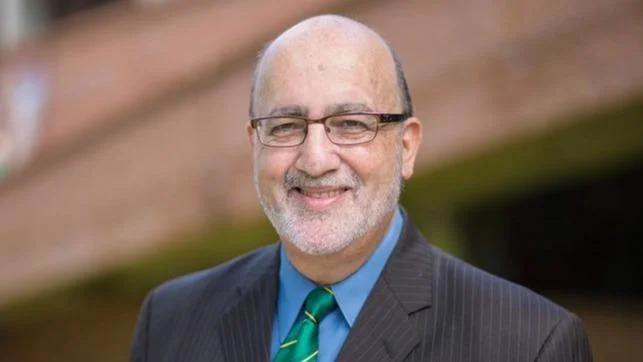Experts from the United States discussed the future of work and purposeful use of technology at the Humphrey Alumni Global Policy Dialogue held at Universidad del Valle de Guatemala (UVG). The event brought together former Fulbright Hubert H. Humphrey fellows from Guatemala for an Innovation Summit, where international speakers addressed topics such as artificial intelligence, the future of employment, and digital innovation in education.
Kyle Bowen, Deputy Chief Information Officer at Arizona State University (ASU), emphasized opportunities to transform higher education in countries like Guatemala through technology. He highlighted the importance of creating spaces for people to learn about technology and its applications. “The best way to be part of the future is to learn and be innovative in order to actively manage technology and see that it is possible to define new solutions,” said Bowen.
Bowen explained that technology supports active learning methodologies used by UVG, allowing students to engage with real-world problems using tools relevant to their future careers. Regarding artificial intelligence (AI) and its impact on learning and health, he stated: “Part of the opportunity lies in thinking about how AI can support formal education in university teaching and learning. Also how everyone can use technologies like AI to support them as they tackle problems, look for a new job or build a new opportunity.”
He shared ASU’s strategy of starting with faculty professional development to create universal literacy about AI’s capabilities and challenges. “ASU teachers and staff help their students think about responsible use of technology and provide this universal layer of literacy where everyone has a common understanding of AI capabilities and some challenges or concerns,” Bowen added.
Heather Whiteman, professor at the University of Washington specializing in people analytics, leadership, and data-driven decision-making, argued that preparing students for the workforce should focus less on specific technologies than on developing continuous learning skills. “The biggest challenge is that some of today’s most critical skills are not necessarily technological. Technology changes so fast that when a student learns it in an educational setting, it may be outdated within the first years of their working life. Education does not necessarily seek technological skills; it is about learning how to learn,” Whiteman said.
She also stressed preparation for ambiguity and critical thinking when interacting with AI systems, encouraging verification of information. For teaching methods, she suggested practical examples such as flipped classrooms—where students learn asynchronously before class time dedicated to applying knowledge through problem-solving.
Whiteman noted that change is constant: “The only thing that remains the same is that everything changes. It’s simply being comfortable with continuous variation and preparing for it. Accepting ambiguity, knowing things will be different, and practicing how to face ambiguous situations.” She advocated solving problems based on data rather than instinctive reactions.
Both experts shared their motivations for participating in the summit at UVG. Whiteman expressed admiration for Guatemala’s people along with her desire to support access to education opportunities; Bowen highlighted his goal of providing learning opportunities while helping communities navigate change.
“I am very excited about the possibility that technology will change how we help others learn. Now we can do things in augmented reality or virtual reality where individuals can almost have the experience of being there,” said Whiteman.
Bowen pointed out the need for stable internet access alongside tools like AI as well as effective digital literacy: “All this constitutes a key part in creating this kind of digital accessibility.”
According to both speakers, lifelong learning, innovation, adaptability—and not just technological adoption—are central elements shaping higher education’s future role amid ongoing transformation driven by advances such as artificial intelligence.

 Alerts Sign-up
Alerts Sign-up